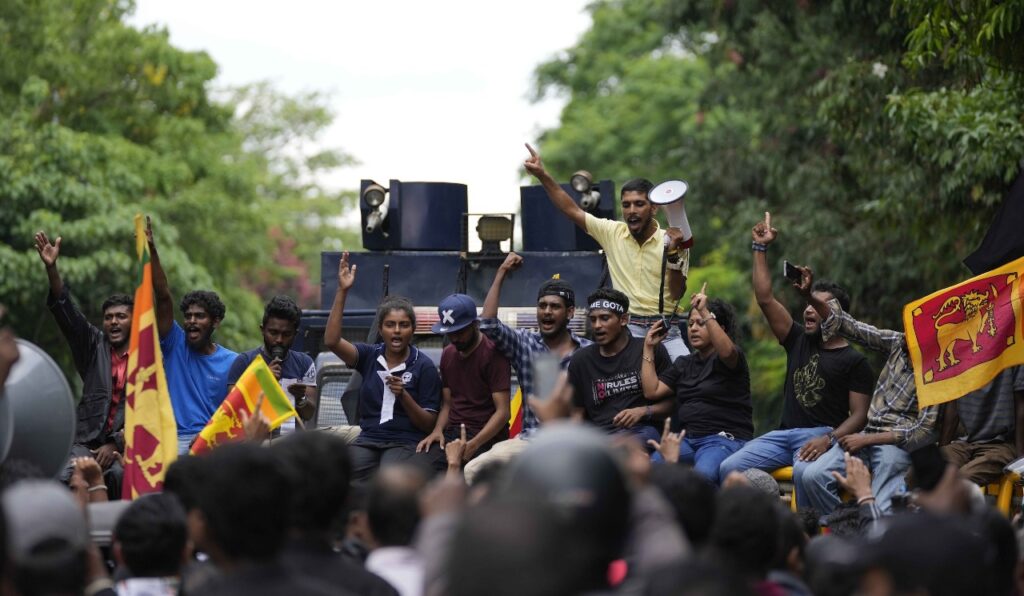Earlier, the Emergency was enforced on April 1 amid heightened protests mainly in the capital city of Colombo and other parts of the country.

New Delhi: Amid protests against a massive economic crisis in the country, Sri Lankan President Gotabaya Rajapaksa once again declared a state Emergency from Friday midnight. This is the second emergency in just a month’s time. The first one was imposed on April 1 amid reports of a worst-ever economic crisis. The Capital city of Colombo and other parts of the country had witnessed protests against the government for its failure on the economic front.
According to the initial reports, the government has invoked the emergency provisions to ensure “public order” as the trade bodies on Friday carried out a nationwide strike demanding removal of the government over the economic failure.
Meanwhile, the law enforcement agency once again fired tear gases and water cannons at students agitating and trying to storm Sri Lanka’s Parliament as the country was brought to a halt by a trade union strike demanding the government to step down. People participating in the protests were demanding the resignation of the incumbent government over the economic mess.
Earlier, the Emergency was enforced on April 1 amid heightened protests mainly in the capital city of Colombo and other parts of the country. On March 31, thousands of people had come down on the streets of the capital city. The protesters had staged a massive protest outside the house of Rajapaksa, waved posters and raised slogans, said sources. Reports of scuffles between protesters and the police had also come in even as the law enforcement agencies had tried to pacify the angry protesters.
Opposition parties, which had held the Rajapaksa government responsible for the worst ever economic downturn in the island nation, had declined the president’s proposal to join the proposed unity government as a “sham”. The Opposition had termed the move ‘nonsensical’ and had mounted pressure on the President to submit his resignation over the country’s worsening shortages of food, fuel and medicines.
